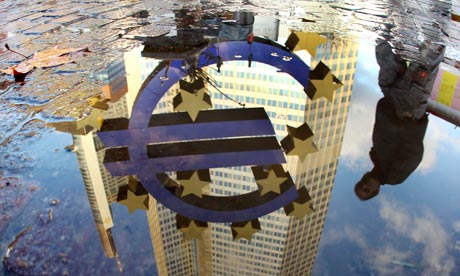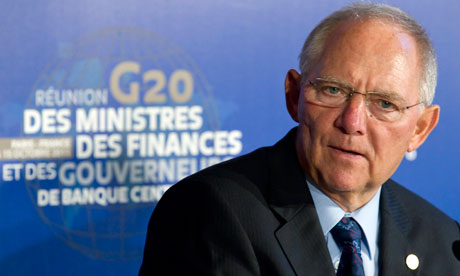A few days ago, Eric Sprott decided to take advantage of the record premium over NAV of his physical silver fund PSLV (or for some other arbitrary reason) and to issue a $300MM follow-onoffering, whose proceeds would be used to buy up silver to add to PSLV's existing physical holdings. Naturally, as soon as the news broke, the premium dropped to about 10%, making PSLV holders unhappy. This is not the first time that Sprott has done this: as a reminder after his April 2011 follow on offering in PHYS, we were fully expecting a comparable physical sequestration to occur via PSLV, to wit: "It appears to have already had an impact on silver, which jumped by $20 cents to another 31 year high on the news, as the market now likely expects a follow on offering in PSLV as well imminently." About 10 months later, it finally happened. As was to be expected, any short-term gains focused investors obviously became angry that by collapsing the premium, which we speculated was shortage driven, they have suffered a hit to their P&L (expressed in dollars of course, which as a reminder to the holders, should be largely irrelevant, especially to those who believe a PM-based barter system is imminent). Yet they forget the flip side to the equation: the money taken out of the premium, would be promptly used to take silver out of (hyper hypothecated) circulation, in other words, in the closed system, the drop in Premium would translate in a rising price in the underlying. Which according to UBS is precisely what has happened, and why silver moved as much as it did. Quoting from FMX Connect: "Today’s incredible move was the culmination of a comment made by UBS analyst Edel Tully. He stated that hedge fund manager Eric Sprott may be in the market buying spot futures in a private letter to his clients." And even as the premium dropped, the price of spot silver increased by over 5%, on the speculation of silver being taken out of the market and delivered to Sprott.
So to summarize: speculation that $300 million in physical silver may be taken out of circulation raises the price of the underlying by 5%. Does that mean that a $3 billion follow on would result in a 50% rise in spot; $30 billion in 500%, and so on? Something tells us the trade off of the premium collapsing to zero in exchange for $100+ silver would be equitable... And as we noted previously, the primary reason for the surge in in the NAV could be many things, but shortage of real physical silver is certainly the most likely one (and good luck trying to buy, transport, store, and insure $10MM or more in physical, without relying on some true physical representation such as PSLV). And if UBS' speculation is true, this has just been confirmed. Most importantly, it once again raises the spectre that anyone wishing to corner the silver market, can do so quite easily even in the aftermath of last year's parabolic move.
Full note from FMX Connect:
Market Recap:
As of the globex close, March Silver was up an astonishing 5.4% ($1.66) on the day, crushing big brother Gold (up .76% on the day). Silver was up an impressive 11 hours in a row, starting from 7 AM. Please enjoy our special commentary below.

Over the last week, and particularly today, silver saw heavy buying. FMX | Connect Managing Partner Vince Lanci discussed the potential for a breakout higher two days ago in an interview hosted by Kitco News (WATCH IT HERE). Of particular note, when asked his opinion on Silver was “If you’re bullish on Gold you should buy Silver.”
Today’s incredible move was the culmination of a comment made by UBS analyst Edel Tully. He stated that hedge fund manager Eric Sprott may be in the market buying spot futures in a private letter to his clients. With declining open interest in a rallying market, it didn’t seem likely to us, but over the last two days we noted open interest has flat-lined and started to turn upward, a bullish indicator.
Intraday moves did not care about how the Euro did or how gold traded. When Silver crossed the 50-day moving average at 30.90 it left Gold in the dust. While thousands of Call butterflies traded in gold over the last few days,they ended the week essentially unchanged.. But the hundreds of calls purchased over the last few days in Silver proved to be big winners for longs with the May 40 Strike garnering the most interest. Finally, note the commitment of traders shows an increase in commercial shorts (an increase of 1,320). This means the bullion dealers have not thrown in the towel and this could just be a market fading away from an impulsive buyer. We’ll wait and see.
Directional Commentary:
Options: Gold volatility was lower going into the weekend and ahead of February options expiration next week. Skew was selectively higher. Options activity remains mostly neutral and is unlikely to manifest strong biases while futures trading is orderly. Conclusion: Neutral
Technical: Gold finished almost $10 higher on the day but still below the highly-cited 50-day moving average at 1673.60. We see this moving average as a strong impediment to gold’s near-term prospects. As a contrasting indicator, open interest has started to creep higher in Jnauary. This (and other factors) leads us to believe that Gold may be due for a near-term correction, but maintain it upward trajectory in the intermediate term. Gold’s objective to the upside is a settlement above 1674 and its objective to the downside is a return to 1600. Conclusion: Neutral

 Click to play video
Click to play video



